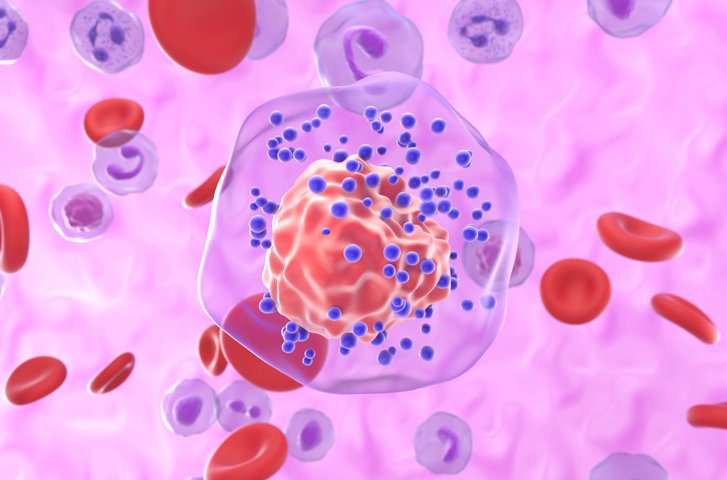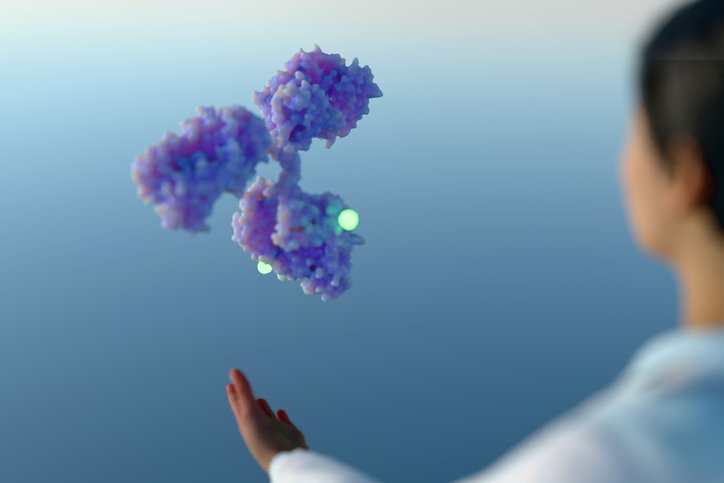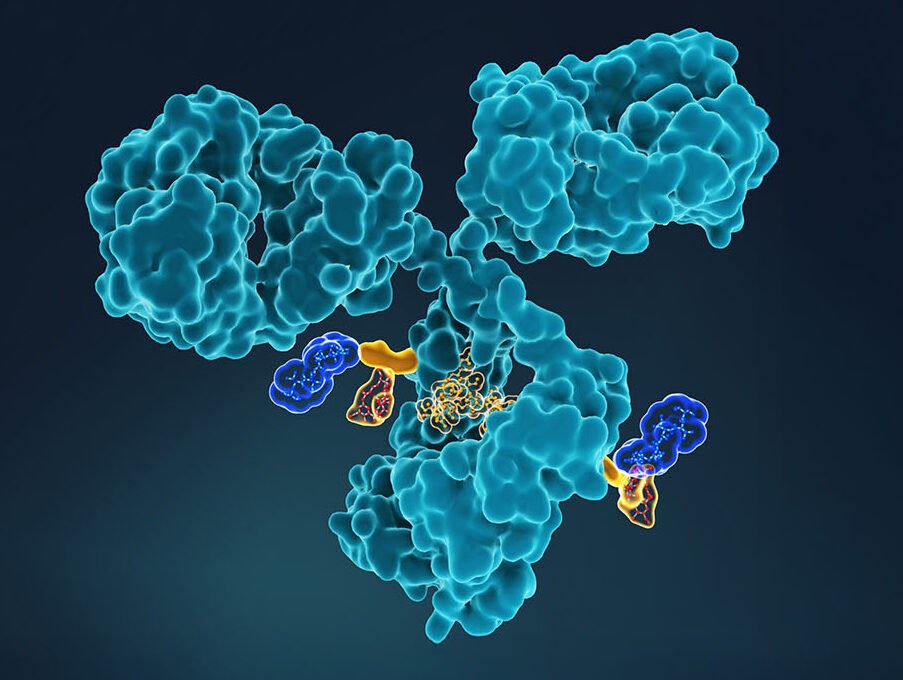Scientists at the University of Pittsburgh, together with colleagues at the University of Pittsburgh School of Medicine and University of Pittsburgh Cancer Institute, have identified how a long noncoding RNA (lncRNA) named EPIC1 endows tumors with the ability to resist immunotherapies. Their work showed that in tumor cells EPIC1 suppressed cytoplasmic double stranded RNA (dsRNA) accumulation, type I interferon (IFN) responses, and antitumor immunity. In vitro and in vivo studies also showed that targeting EPIC1 RNA in cells and in mouse models of cancer can potentiate checkpoint blockade and slow tumor growth. Knocking down EPIC1 improved the therapeutic efficacy of the PD-1 Inhibitor pembrolizumab in the humanized mouse model of triple negative breast cancer (TNBC).
Dhamotharan Pattarayan, PhD, at the University of Pittsburth Center for Pharmacogenetics, is lead author of the team’s published paper in Science Signaling, titled “The lncRNA EPIC1 suppresses dsRNA-induced type I IFN signaling and is a therapeutic target to enhance TNBC response to PD-1 inhibition.” In their paper the team concluded, “Together, our findings establish EPIC1 as a key regulator of dsRNA-mediated type I IFN responses and highlight its potential as a therapeutic target to improve the efficacy of immunotherapy.”
Despite their clinical success, immunotherapies such as PD-1 blockade still face many obstacles that impede their effectiveness. Many patients aren’t eligible for immunotherapy, and those who are eligible don’t always respond to treatment. Furthermore, tumors often adapt over time to resist these treatments, leading to high relapse rates and poor outcomes. Scientists are now searching for proteins and other molecules that enable tumors to resist treatments, theorizing that targeting such factors could boost the cancer-killing power of immunotherapy. “There is an urgent need for identifying effective biomarkers and targets that can predict and overcome immunotherapy resistance in clinical settings,” the authors wrote.
Through their newly reported study, Pattarayan and colleagues identified one such target in EPIC1, a long noncoding RNA that contributes to tumor evasion. “Multiple studies have highlighted the pivotal roles of noncoding RNAs in epigenetic regulation in cancer,” they stated. “Long noncoding RNAs (lncRNAs) can act as molecular scaffolds, bridging epigenetic regulators with their target loci to facilitate specific binding and regulation.”
![Immunofluorescence analysis of dsRNA in breast cancer tumors developed in humanized mice after anti-PD1 and anti-EPIC1 co-treatment. [Reproduced from Pattarayan et al., Sci. Signal. (2025) with permission.]](https://www.genengnews.com/wp-content/uploads/2025/08/low-res-28-288x300.jpeg)
The team noted that their previous studies had indicated that EPIC1 can interact with the epigenetic regulator EZH2 and the transcription factor MYC to promote tumorigenesis and enable various cancer cells to evade immune surveillance. “Compared with adjacent normal tissues, EPIC1 is frequently epigenetically activated by loss of DNA methylation at its promoter in multiple cancer types, including breast cancer, melanoma, and lung cancer,” they stated.
For their study described in Science Signaling the team examined human breast cancer cells and found that EPIC1 restrained immunity against tumor cells by suppressing type I interferon signaling and the accumulation of double-stranded RNAs, which normally facilitate antitumor responses, in the tumor cells. EPIC1 orchestrated these effects by inhibiting the activation of various types of retroelements (REs), which are DNA sequences that can move around within genomes and produce double-stranded RNAs when activated. Reducing EPIC1 levels restored double-stranded RNA production in cancer cells and revived antitumor immune responses. “We found that suppression of EPIC1 substantially induced immunogenic RE expression and cytoplasmic dsRNA accumulation, leading to the activation of type I IFN signaling.”
The investigators in addition showed that oligonucleotides that target EPIC1 for degradation slowed the growth of triple-negative breast cancer tumors in mice and boosted the infiltration of T cells and macrophages into tumors. “In a humanized mouse model, in vivo delivery of EPIC1-targeting oligonucleotides enhanced dsRNA accumulation in breast cancer xenografts, reduced tumor growth, and increased the infiltration of T cells and inflammatory macrophages into tumors,” they wrote.
Knocking down EPIC1 sensitized tumor-bearing mice to treatment with the approved PD-1 inhibitor pembrolizumab, highlighting EPIC1’s viability as a potential therapeutic target. “Furthermore, EPIC1 knockdown improved the therapeutic efficacy of the immunotherapy drug pembrolizumab, a PD-1 inhibitor, in the humanized mouse model,” the team reported. “.. the in vivo humanized mouse model study not only establishes EPIC1 as a potential biomarker for immunotherapy resistance in various cancers but also opens avenues for developing combination therapies targeting EPIC1 and immunotherapy.”
The post Potential Triple Negative Breast Cancer Target in EPIC Long Noncoding RNA appeared first on GEN – Genetic Engineering and Biotechnology News.




